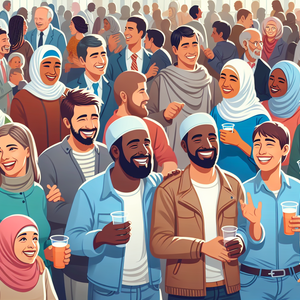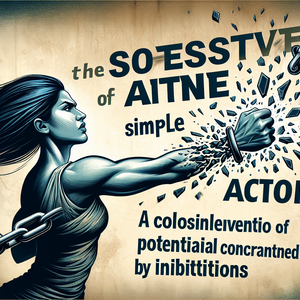Honoring the Unsung Heroes of Veterans Day

While many veterans may not have received medals or public acclaim, their commitment to service continues in meaningful ways long after they leave the battlefield. Unsung heroes exemplify the spirit of service that Veterans Day represents through their everyday actions. For instance, take the story of John Thompson, a Vietnam veteran who returned to his hometown and established a mentorship program for at-risk youth. Through his organization, Thompson has positively impacted the lives of hundreds of young people, helping them develop leadership skills and a sense of purpose. His story is one of many that illustrate how veterans can channel their experiences into impactful community service.
The Role of Community Engagement
Many unsung heroes have directed their post-military lives toward community service, focusing on various issues, including mental health and social justice. Veterans like Maria Lopez, who served in the Gulf War, have dedicated their lives to advocating for mental health awareness among veterans. After returning from service, Maria started a local support group that not only assists veterans in navigating their mental health challenges but also fosters a sense of camaraderie among participants. Her efforts have created a safe space for veterans to share their experiences and seek help, demonstrating how veterans can transform their struggles into powerful tools for community improvement.
Bridging Generational Gaps
Another critical aspect of honoring unsung veterans is their role in bridging generational gaps. Veterans often play pivotal roles in sharing their experiences with younger generations, fostering understanding and appreciation for military service. The “Veterans in the Classroom” initiative is a perfect example, pairing veterans with local schools, allowing them to share personal stories and lessons learned from their time in service. This initiative not only honors the veterans but also educates young people about the realities of military life and the sacrifices made by those who serve. By facilitating these conversations, veterans help to instill values of respect, resilience, and empathy in the next generation.
The Power of Storytelling
Storytelling serves as a powerful means of honoring unsung heroes. Platforms like “Humans of New York” have showcased the stories of veterans, revealing their struggles and triumphs in compelling narratives. These stories humanize the veteran experience and encourage others to recognize the value of every individual’s service. Whether they recount tales of bravery in combat or acts of kindness in civilian life, the narratives of veterans remind us of their diverse contributions to society. By sharing these stories, we can cultivate a culture of appreciation and understanding, ensuring that the sacrifices of all veterans are acknowledged.
Celebrating Local Heroes
Communities can take proactive steps to honor unsung veterans by organizing local recognition events. For example, towns can host “Veterans Appreciation Days,” where local heroes are invited to share their stories and receive public acknowledgment. These events can also serve as fundraisers for veteran-related charities, creating a sense of unity and purpose. By celebrating local heroes, we reinforce the idea that every veteran’s story matters and deserves recognition. Such initiatives not only honor those who have served but also strengthen the fabric of our communities.
As we celebrate Veterans Day, let us commit to honoring not only the famous figures of our military history but also the unsung heroes whose contributions often go unnoticed. Their stories enrich our understanding of service and sacrifice, reminding us that every veteran has a unique narrative worth sharing. By recognizing and celebrating these individuals, we can inspire future generations to appreciate the complex and diverse experiences of those who have served. This Veterans Day, let us not only say thank you but also take the time to learn about the heroes in our own communities, ensuring that their legacies are preserved and celebrated for years to come. Let us honor the unsung heroes who embody the true spirit of Veterans Day—those whose quiet acts of bravery continue to shape our world long after their uniforms have been put away.
Community Outreach Coordinator
Core Responsibilities
Develop and implement community engagement programs that promote veteran services and resources.
Foster partnerships with local organizations, businesses, and schools to enhance outreach efforts.
Organize events that celebrate and recognize the contributions of veterans within the community.
Required Skills
Strong communication and interpersonal skills to effectively connect with diverse groups.
Experience in program development and event planning, preferably within a nonprofit or community-focused environment.
Familiarity with veteran affairs and local community needs is a plus.
Common Employers
Nonprofit organizations
local government agencies
veteran service organizations
Mental Health Advocate for Veterans
Core Responsibilities
Provide support and resources for veterans dealing with mental health challenges, including organizing support groups and workshops.
Collaborate with mental health professionals to develop programs that address the unique needs of veterans.
Raise awareness about mental health issues within the veteran community through outreach and education initiatives.
Required Skills
Background in psychology, social work, or counseling, with a focus on trauma-informed care.
Excellent problem-solving skills and the ability to empathize with individuals facing mental health struggles.
Strong public speaking skills for conducting workshops and presentations.
Common Employers
Mental health organizations
veteran support groups
healthcare providers
Program Director for Veteran Services
Core Responsibilities
Oversee the development and implementation of programs aimed at supporting veterans' transition to civilian life.
Manage staff and volunteers, ensuring that programs align with organizational goals and community needs.
Evaluate program effectiveness and make adjustments based on feedback and outcomes.
Required Skills
Proven leadership experience, ideally with a background in social services or nonprofit management.
Strong organizational and strategic planning abilities to effectively manage multiple programs.
Knowledge of veteran issues and resources is essential.
Common Employers
Veteran organizations
community service agencies
educational institutions
Veteran Storytelling Program Facilitator
Core Responsibilities
Design and lead workshops focused on storytelling techniques for veterans to share their experiences and insights.
Collaborate with local schools and community groups to facilitate storytelling events that promote understanding of military service.
Document and publish veteran stories to highlight their contributions and experiences.
Required Skills
Experience in creative writing, journalism, or communications, with a passion for storytelling.
Ability to create a safe and supportive environment for participants to share personal narratives.
Strong facilitation skills and experience working with diverse populations.
Common Employers
Educational institutions
nonprofit organizations
community arts programs
Veteran Affairs Case Manager
Core Responsibilities
Assist veterans in accessing a variety of services, including healthcare, housing, and employment support.
Conduct assessments to identify individual needs and create personalized service plans.
Advocate for veterans’ rights and benefits, providing guidance through the application processes.
Required Skills
Background in social work, counseling, or related fields, with a deep understanding of veteran resources.
Strong organizational and communication skills to manage caseloads and collaborate with various agencies.
Empathy and patience, particularly when working with veterans facing challenges.
Common Employers
Government agencies
veteran service organizations
healthcare facilities


